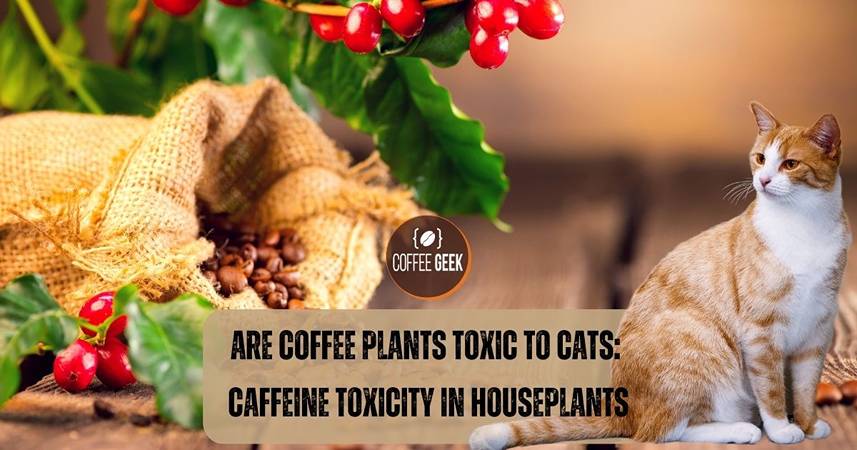Who would have thought that a harmless beverage brewing in your kitchen could possibly pose a threat to your feline furball? Yep, you heard it right!
That innocent-looking coffee plant sitting on your window sill might actually be toxic to cats.
Unbelievable, right? So, roll up your sleeves and join me as I spill the beans…umm…coffee beans, in this case.
Understanding the Toxicity of Coffee Plants to Cats
Why are Coffee Plants Toxic to Cats?
Whiskers and coffee don’t mix. But why? Simple. Coffee plants contain saponin and caffeine, which are toxic to cats.
If Mr. Fluffy accidentally ingests a part of your coffee plant, be it a leaf, a coffee bean, or even coffee grounds, consider it a ‘cat-astrophy’!
The plant is toxic and can lead to caffeine toxicity in cats. After all, cats and coffee are like oil and water. They simply don’t mix!

The Caffeine and Saponin Found in Coffee Plants
Did you know that Saponin, which is part of a coffee plant, can take your cat on a rather unwanted roller coaster ride? It can cause vomiting, diarrhoea, and even a decreased appetite.
Talk about a cat-astrophe! And coffee beans, those little treats hidden inside the plant, aren’t treats for cats at all.
They contain caffeine, which is highly toxic to cats. It’s like having the villain and his sidekick both present in your house plant!
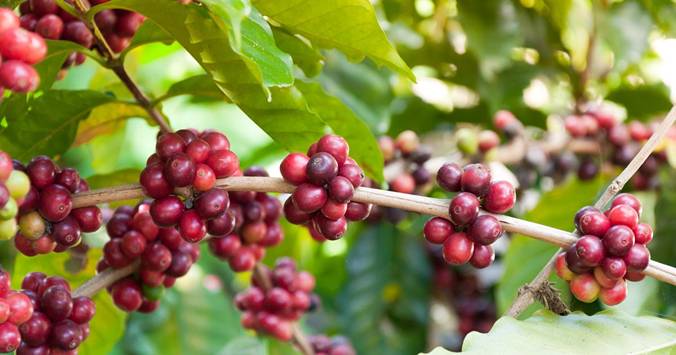
Parts of a Coffee Plant Most Hazardous to Cats
From there, all parts of the coffee plant, really, are hazardous for cats.
Ironically, the very thing we treasure the most about our coffee plants – the coffee beans – turns out to be the equivalent of a dangerous trap for our feline friends.
Mouthful of coffee grounds can have your kitty dialing 911 on speed dial.
Symptoms of Coffee Plant Poisoning in Cats
Immediate Symptoms After a Cat has Eaten a Coffee Plant
Now hold onto your whiskers ladies and gentlemen because the ride gets more turbulent.
If your cat has ingested a coffee plant, the first thing you’ll notice are symptoms like hyperactivity, restlessness, vomiting, and possibly diarrhea.
It might look like your cat just threw a wild party and you weren’t invited!
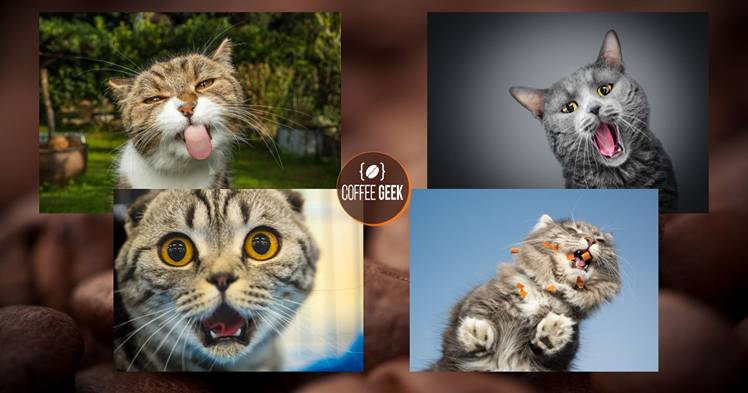
Long-Term Symptoms of Coffee Tree Poisoning in Cats
If ingested over a long period, the symptoms of coffee tree plant poisoning in cats include damage to the lungs, heart, kidneys, and central nervous system.
We’re talking tremors, seizures, rapid breathing, and increased heart rate. Yep, it’s as scary as it sounds!
The Threat of Caffeine Toxicity in Cats
A cat ingesting part of the plant, like snacking on coffee beans, could lead to an unfortunate case of caffeine toxicity. This, dear cat-parents, is certainly one coffee challenge Fluffy does not wish to take part in!
Different Types of Coffee Plants and Their Level of Toxicity
Arabica Coffee Plants and Cats
And guess what’s even more shocking? The famous Arabica plant, the same one responsible for your delicious cup of coffee every morning, is a threat to your poor kitten’s health.
An unsuspecting nibble on an Arabica coffee plant could take your kitty on a one-way trip to the vet!
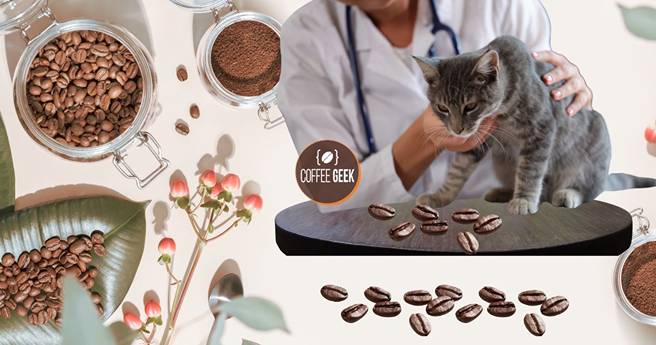
The Wild Coffee Tree: A Threat to Feline Health?
Things get even wilder if you’ve got a wild coffee tree in your house. My dear cat parents, these plants are potentially harmful to cats and can make your calm home feel like a roller coaster ride.
Selecting Safe Houseplants: Coffee Plant Alternatives
Luckily, there are safer headliner plants for home decoration that pose zero threat to our beloved feline friends.
Take a look at these plants that are safe for Fluffy like areca palm, spider plant, or even a lipstick plant. They’re equally fabulous and much safer!
Treatment for Cats Who’ve Ingested Coffee Plants
If Your Cat has Eaten a Coffee Plant: First Steps
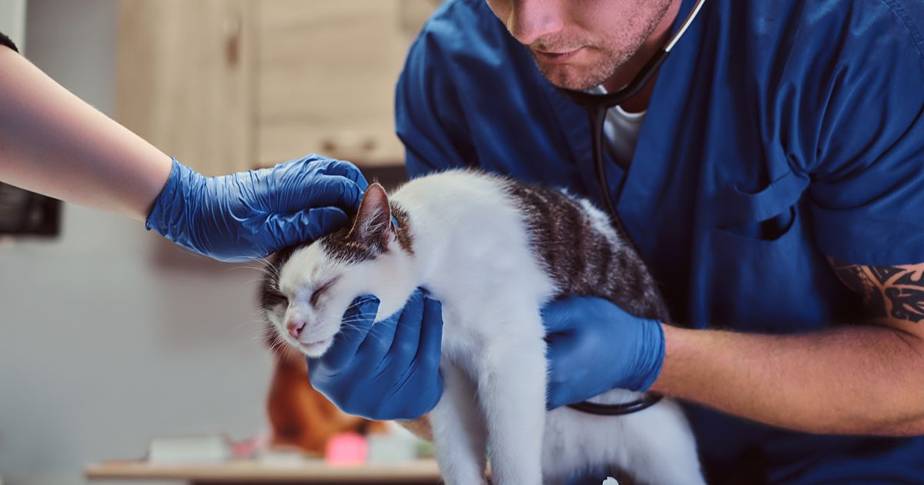
Spot your kitty noisily munching on your coffee plant? Panic not! Take deep breaths, then follow these first steps.
Remove Fluffy from the toxic area, and give your vet a quick call. Preparation and calmness can save your cat’s life.
Action to Take Upon Confirming Coffee Tree Poisoning
Confirming coffee tree poisoning isn’t an exact science since there isn’t a test for coffee tree poisoning in cats. Yet, if the symptoms of coffee plant poisoning are visible, immediate vet action is necessary.
Likely, your vet will induce vomiting or administer medications to control seizures and heart rate.
Long-Term Care After Caffeine Toxicity in Cats
Phew, once you’re past the storm of coffee tree poisoning in cats, long-term care involves regular vet checks and managing a cat-friendly environment. Remember, the best treatment is prevention.
Keeping Your Houseplant-Loving Cat Safe
Keeping Coffee Plants Out of Reach
Keeping your coffee plants out of reach cuts their lunch options down, keeping the cat and plant on good terms.
Keep those coffee trees safe and sound in places your cat cannot reach!
Will it be easy? No! But your cat will thank you in many loving purrs.
Safe Houseplants for Cats
Thankfully, not all houseplants are a threat to our purr-y friends. Safe indoor plants like spider plants, Swedish ivy, or even Boston fern can make your home blooming and pet-friendly.
Creating a Safe Indoor Environment for Cats
Coffee might keep you sharp, but your wittiness alone won’t protect Whiskers from caffeine toxicity.
Embrace cat-friendly house plants, keep coffee plants out of reach, and most importantly, keep an eye on your cat to avoid any hazardous mischief!
To wrap it up, if you’re a proud cat-parent and a coffee lover, you’ll definitely need to make some adjustments.
While your feline friend makes your world go round, it’s crucial to avoid having a coffee plant that’s toxic to cats in your house. Remember, a safe cat is a happy cat!
| Aspect | Coffee Plants and Cats |
|---|---|
| Plant Name | Coffee Plant |
| Scientific Name | Coffea spp. |
| Toxic Components | Caffeine, Theobromine |
| Toxic Parts of the Plant | Beans, Leaves, Bark |
| Toxicity Level | Moderate to High |
| Symptoms of Ingestion | Vomiting, Diarrhea, Increased Heart Rate, Hyperactivity, Tremors |
| Potential Health Risks | Gastrointestinal disturbances, Cardiac Issues |
| Treatment | Seek Immediate Veterinary Attention |
| Preventive Measures | Keep Coffee Plants Out of Reach, Monitor Cat’s Environment |
| Alternative Safe Plants | Catnip, Cat Grass, Spider Plant, Areca Palm |
Conclusion
When it comes to the safety of pets, particularly cats, it’s crucial to know which plants are harmful and which are safe.
Cats are curious creatures by nature, and they often nibble on plants, either out of curiosity or simply because they like the texture or taste.
One plant that often raises concerns among those who love their cats is the coffee plant.
Coffee plants are toxic to cats and other animals, primarily due to the presence of compounds like caffeine.
If you’re a coffee lover and keep your cat away from the plant that produces the beans used to make coffee, it’s a wise precaution.
The toxicity of coffee plants and coffee beans to cats and dogs is significant.
The caffeine in the coffee, which is a stimulant for humans, can cause symptoms such as vomiting and diarrhea in cats.
In severe cases, if a cat consumes a considerable amount of coffee or parts of a coffee tree, it may lead to more serious health issues.
It’s rare for coffee plants to be kept as a houseplant, but if you have one, it’s important to keep your cat away from it.
If you suspect that your cat has ingested coffee or if your cat may have had topical coffee tree exposure, it’s essential to take your cat to the vet immediately.
While it is possible for cats to fully recover after ingesting a small quantity of coffee tree or beans, immediate veterinary attention is crucial.
While some plants contain toxic substances to pets, many beautiful and safe options exist that can be kept as houseplants without any risk to your cat.
Therefore, if you love your cats and want to keep them safe, ensure that any plants in your home, including coffee plants, are kept away from your cat.
Always research whether your cat can be exposed to a particular plant and what to do if your cat has been poisoned by a plant.
Remember, giving your cat a safe environment is as important as providing love and care.
People Also Ask
Are coffee plants toxic to cats?
Yes, coffee plants, specifically Coffea Arabica, are toxic to cats. If your cat consumes any part of the plant, it is likely to cause poisoning.
It’s best to keep toxic plants like these out of reach to prevent any incidents.
If my cat eats coffee plant, what could happen? What are the symptoms of coffee plant toxicity?
If your cat consumes the coffee plant, they may suffer from vomiting and diarrhea.
Other symptoms could include restlessness, rapid breathing, heart palpitations, muscle tremors, and seizures.
If you notice such symptoms, contact your vet immediately as they are indicators of caffeine poisoning.
Are all house plants toxic to cats or just coffee plants?
Not all house plants are toxic to cats but yes, coffee plants are one of those that pose risks.
There are quite a few plants safe for cats, but it’s important to do your research before introducing any new plants in your home.
My cat rubs against the plant, can it have an effect on the cat’s skin?
Generally, just rubbing against the plant isn’t likely to cause harm to your cat’s skin.
However, if your cat happens to break the plant or its berries and the sap or juice makes contact with their skin, it may cause irritation.
If you notice any changes in your cat’s behavior or appearance, please consult a vet.
I keep the coffee plants somewhere my cat can’t reach, is that safe enough?
It’s a smart move to keep your coffee plants somewhere your cat can’t reach.
However, cats can be very agile and curious so extra precaution may be needed. Consider placing a cat-proof barrier around the plants to ensure total safety.
How much of the plant is poisonous to cats?
All parts of the coffee plant are considered poisonous plant to cats.
The leaves and berries of the plant contain caffeine and theobromine, which can be harmful if ingested in large quantities. Even a small quantity of coffee plant could be harmful to your cat.
My cat has eaten some coffee plant, what should I do?
If you suspect your cat has ingested the coffee plant, it’s important to act quickly.
Contact your veterinarian immediately and follow their instructions. It’s better to be safe than sorry.
How can I keep my cat away from the coffee plants?
It’s best to keep your coffee plants in a room where your cat doesn’t have access.
If this isn’t possible, consider planting something cats don’t like, such as citronella or rosemary, near the coffee plants to deter them, or set up a physical barrier.
Can cats suffer from topical coffee tree poisoning?
While it’s rare, cats can potentially suffer from topical coffee tree poisoning, especially if they rub on the plant and then lick their fur.
The effects might be mild to severe depending on how much was ingested.
How do I make my home safe for my cat?
Research all plants and flowers before bringing them into your home to ensure they are safe for cats.
It’s also wise to cat-proof your home by keeping toxic plants and other hazardous items out of reach.

